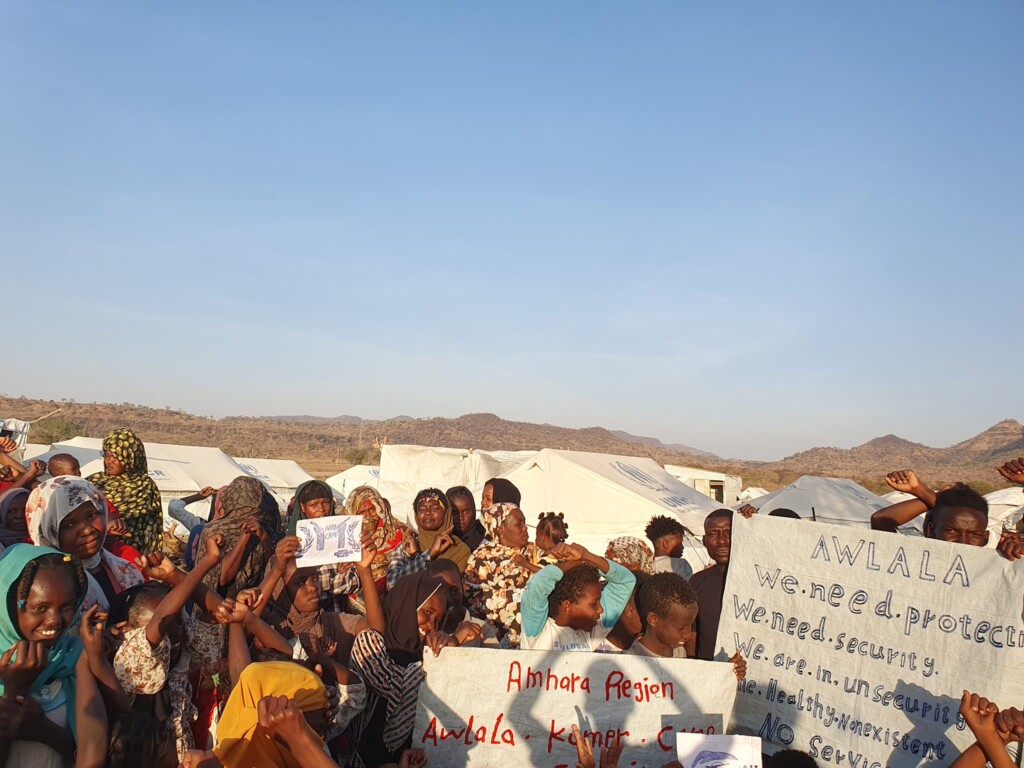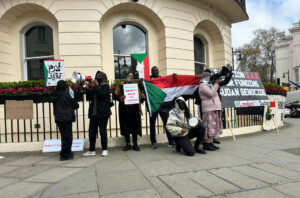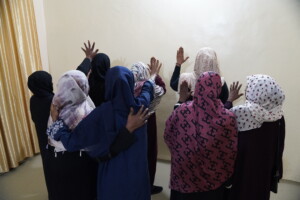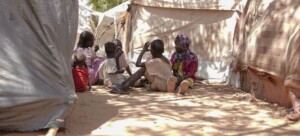Urgent plea to aid Sudanese refugees in Ethiopia and Uganda

Refugees in Awlala, Amhara, protest against the rampant insecurity in the area in April (Photo: Facebook page of Sudanese refugees in Ethiopia)
The No to Women’s Oppression initiative has launched an urgent humanitarian appeal to the international community to resolve the crisis of Sudanese refugees stranded in the Kumer and Awlala camps in the forests of Ethiopia, while Sudanese refugees in Uganda’s Kiryandongo camp called for improved living conditions and support from Tagadom.
In a statement published yesterday, the initiative called on the United Nations High Commissioner for Refugees (UNHCR) and Ethiopian authorities to evacuate all refugees to safe camps and provide them with essential resources.
The statement documented testimonies from activists in the camps, confirming that refugees had died due to a lack of medical care. “Forty-three births were performed using a razor and nylon bags, with wounds stitched using regular thread after boiling it.” Additionally, four cases of paralysis occurred among refugees due to incorrect drug injections, and there is no oxygen or nebuliser to assist with breathing, leading to instant deaths.
The number of stranded Sudanese in Ethiopia is estimated by No to Women’s Oppression at 6,248 people, including 2,133 children, 76 people with disabilities, and 1,196 sick people.
In August of last year, an estimated 6,000 Sudanese refugees participated in demonstrations at Awlala camp over the scarce food and medicine provided to them. They also demanded protection from attacks by local militiamen.
Radio Dabanga reported on February 20 that two Sudanese people were killed and six raped in Kumer camp, while others were robbed and kidnapped. On April 23, thousands of Sudanese refugees sheltering in Kumer and Awlala staged demonstrations in protest against the rampant insecurity in the area.
Uganda
Sudanese refugees in the Kiryandongo camp in Uganda have called on the Civic Democratic Forces alliance (Tagadom) to provide them with survival means, enhance safety measures, and offer psychological support at the camp.
They highlighted the lack of food aid, which has led to malnutrition, the scarcity of basic health services, and the lack of clean drinking water. The camp has only one school, which serves students of different nationalities, increasing the strain on resources.
These demands were voiced during a visit by Hayam Bushra, vice-president of Tagadom, to the Kiryandongo camp in northern Uganda. Bushra announced that the issues of refugees and displaced people are among Tagadom’s priorities. She stated her commitment to ending the war to alleviate their suffering and promised to raise their issues and demands in national, regional, and international forums.
She also pledged to cooperate with humanitarian organisations to provide necessary support and work towards stopping the war in Sudan to enable refugees to return to their homeland. “Tagadom is aware of all the needs and demands and promises to present them to the concerned authorities to accelerate their resolution as quickly as possible,” she said.











 and then
and then